We don’t want to overwhelm you, but while you’re catching up with our top 50 films of 2021, more cinematic greatness awaits in 2022. Ahead of our 100 most-anticipated films (all of which have yet to premiere), we’re highlighting 30 titles we’ve enjoyed on the festival circuit this last year (and beyond) that either have confirmed 2022 release dates or await a debut date from its distributor. There’s also a handful of films seeking distribution that we hope will arrive in the next 12 months, as can be seen here.
As an additional note, a number of 2021 films that had one-week qualifying runs will also get expanded releases in 2022, including A Hero (Jan. 7), Cyrano (Jan. 28), The Worst Person in the World (Feb. 4), Mothering Sunday (Feb. 25), Petite Maman, and A Chiara.
The Shepherdess and the Seven Songs (Pushpendra Singh; Jan. 12)
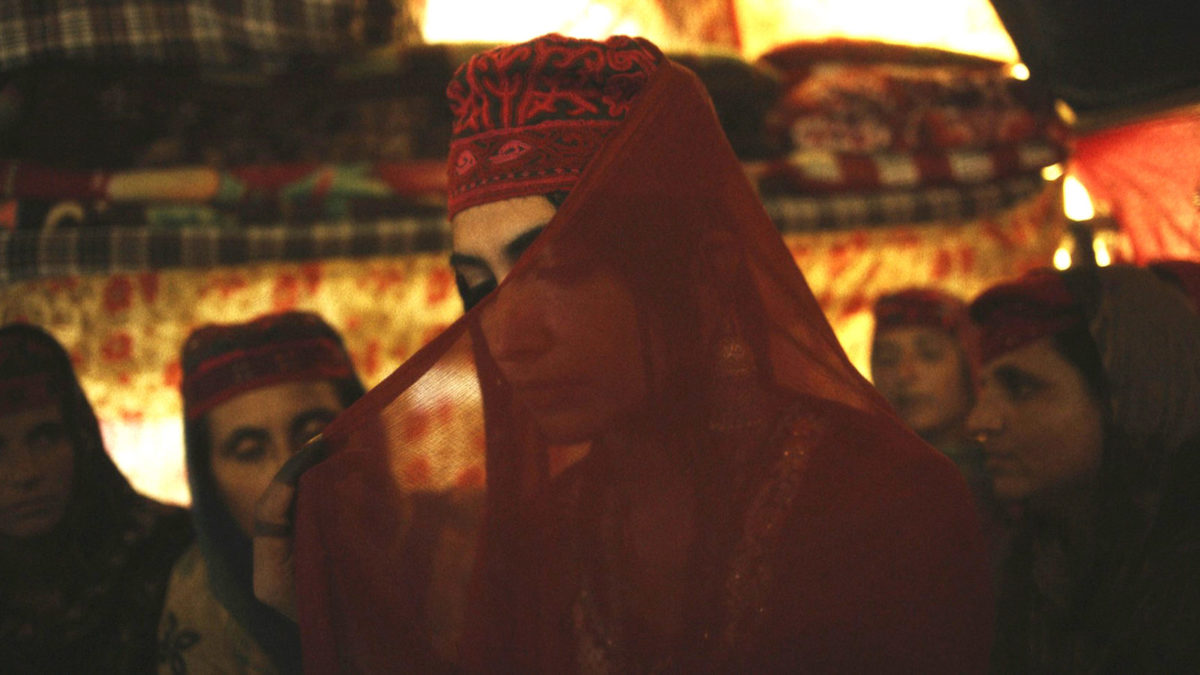
Northwest India’s Jammu and Kashmir region resides at the center of a longstanding geopolitical stalemate involving neighboring Pakistan. While those tensions are referenced in The Shepherdess and the Seven Songs, they are not the film’s focal point. Instead, paranoia and opportunism have become fully ingrained in the forest area’s mountainous bedrock. Of more importance is why these characters either accept or subvert such societal realities, and how they normalize modes of corruption and gender inequality under the guise of tradition or progress. – Glenn H. (full review)
Italian Studies (Adam Leon; Jan. 14)

Adam Leon’s third feature, Italian Studies, follows Vanessa Kirby as Alina Reynolds, a woman who at times doesn’t know her own name. Call it amnesia or memory loss or even a blackout, but Kirby’s leading performance is built on a calm confusion. Leon’s story gives little context or background to how this woman came to have these spells, instead accompanying her over the course of a 24-hour period in New York City. – Michael F. (full review)
Belle (Mamoru Hosoda; Jan. 14)

If a name can trigger nostalgia, don’t be surprised when the occasional sense of deja vu sets in while watching Belle, a dazzling near-future tech fantasia wrapped around a tale, yes, as old as time. Directed by Mamoru Hosoda and mostly set in a vast online world of sweeping musical numbers and weightless action sequences, it tells of Suzu, an awkward teenager (as if there were any other kind) who finds quick fame performing as the pop-singer Belle: her avatar on a hugely popular social media platform called U that looks like a sugary cocktail of Tik Tok and “The Oasis” from Spielberg’s Ready Player One. – Rory O. (full review)
The Pink Cloud (Iuli Gerbase; Jan. 14)
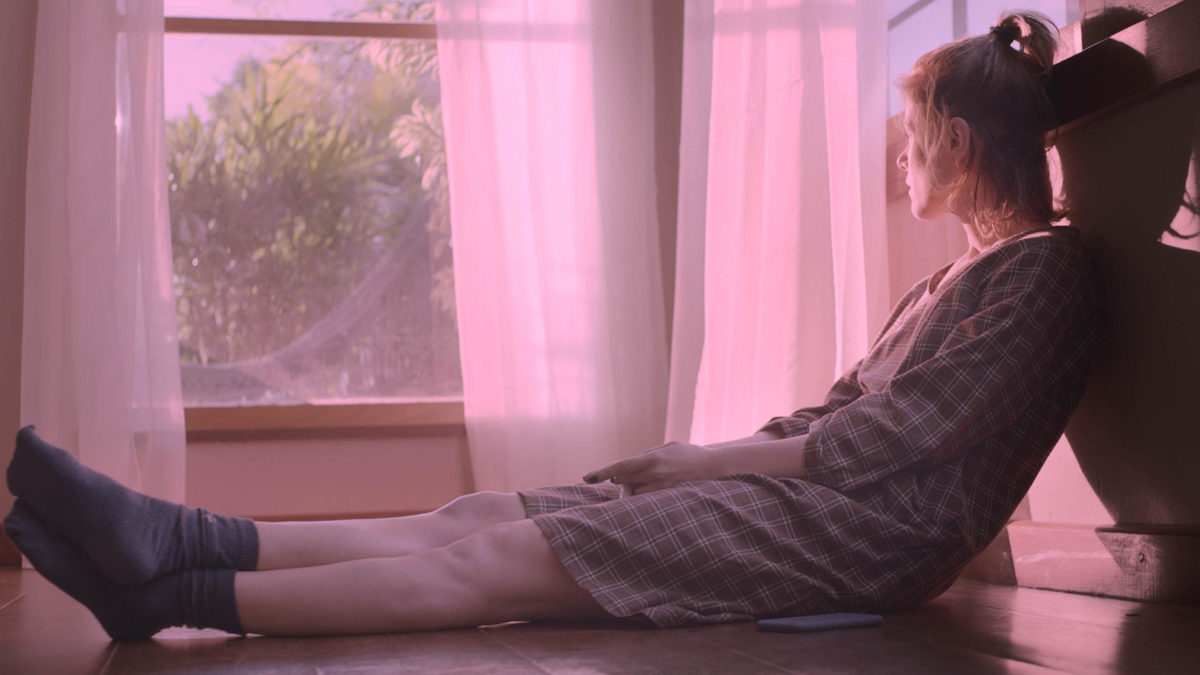
Iuli Gerbase’s The Pink Cloud starts off with a disclaimer: “This film was written in 2017 and shot in 2019. Any resemblance to real life is purely coincidental.” Indeed, it doesn’t take long before the uncanny connections between Gerbase’s film and the real-life COVID-19 pandemic become quite unsettlingly clear, in what feels like the simultaneously most accurate and most dystopic depiction of life during a pandemic (namely, during lockdowns of the first part of 2020). – Brianna Z. (full review)
Introduction (Hong Sangsoo; Jan. 21)
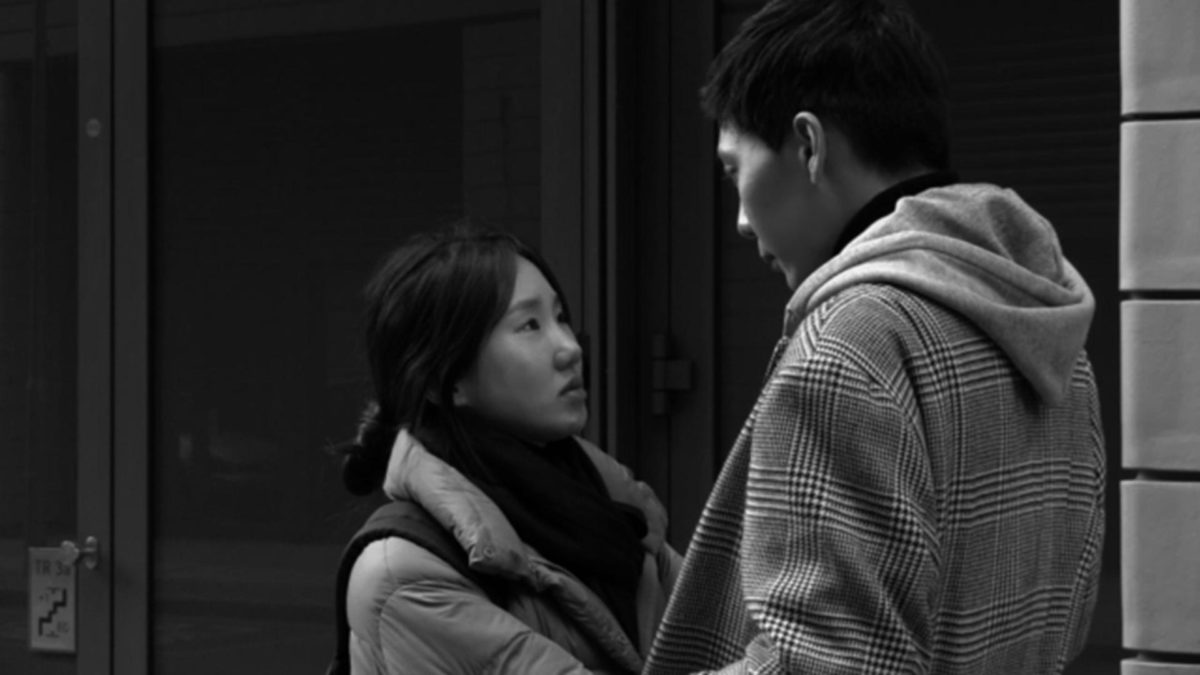
First paragraphs of Hong Sang-soo reviews often dwell on the Korean master’s penchant for self-repetition, soothing readers that narrow expectations will be fulfilled. Let’s take a different course. This new work, Introduction, which charts a variety of fraught social “introductions” across different relationships, caused reflection on my first impressions of a director who’d soon become a reliable favorite, before any expectations could be tweaked or swerved. That film, 2013’s Nobody’s Daughter Haewon, made me think I was observing one of the chintziest, lowest-fidelity trifles imaginable, one hilarious fake-out gag with Jane Birkin notwithstanding. What might an unsuspecting viewer confronted with this film make of its unfriendly visage? – David K. (full review)
Brighton 4th (Levan Koguashvili; Jan. 28)
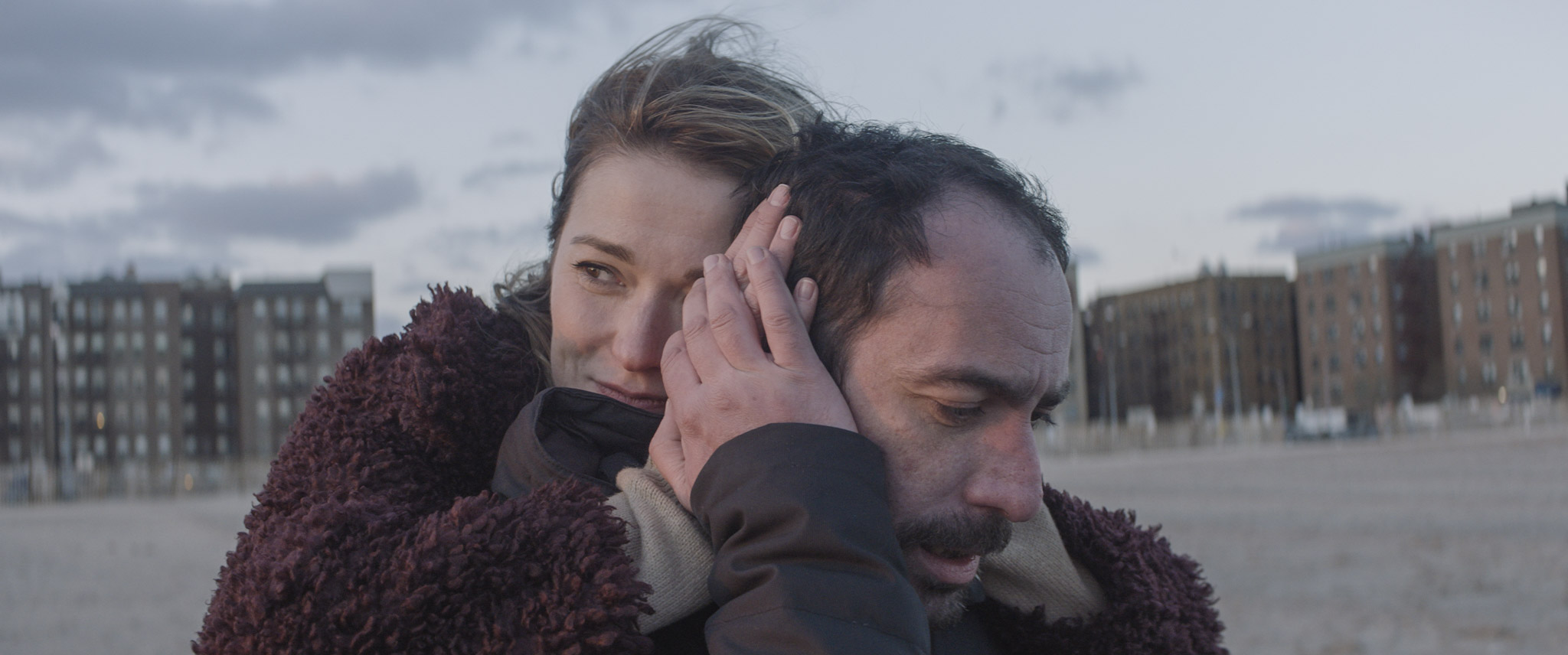
In Brighton 4th, the Georgian diaspora of Brooklyn’s Brighton Beach (an area known colloquially as “Little Odessa” for its largely East European and Russian communities) provide backdrop to a touching story of father (a former champion wrestler) and son (a decent man with an indecent gambling habit). Equally warm and melancholic with a rich vein of tragicomedy, Brighton is just the second narrative from Levan Koguashvili, a Georgian filmmaker who became toast of this year’s Tribeca Film Festival when Brighton 4th took home the award for Best Film in their “International” selection, as well as Best Actor (Levan Tediashvili, an astonishing find) and Best Screenplay (Boris Frumin, a writer and associate professor at NYU.) – Rory O. (full review)
Poly Styrene: I Am a Cliché (Celeste Bell & Paul Sng; Feb. 2)

For a young teenager steeped in grunge, Britpop, and the Beatles, the discovery of 1970s UK punk rock was tantamount to a swift slap in the face—and a glorious one, at that. And one of the crucial pieces of pre-internet background information was England’s Dreaming, Jon Savage’s indispensable study of the era. The book is full of memorable figures—none more so than Poly Styrene. She is only a minor player in Savage’s text, but few resonate more. The author explains that “Poly was a star, with her dayglo clothes, multi-racial background, teeth braces, and surreal songs which wittily commented on that very process of consumption and packaging that she was at once celebrating and transcending.” All of these elements and many others are represented in the long-in-the-works documentary Poly Styrene: I Am a Cliché, which made its Canadian premiere at Hot Docs 2021. – Christopher S. (full review)
Lingui, the Sacred Bonds (Mahamat-Saleh Haroun; Feb. 4)
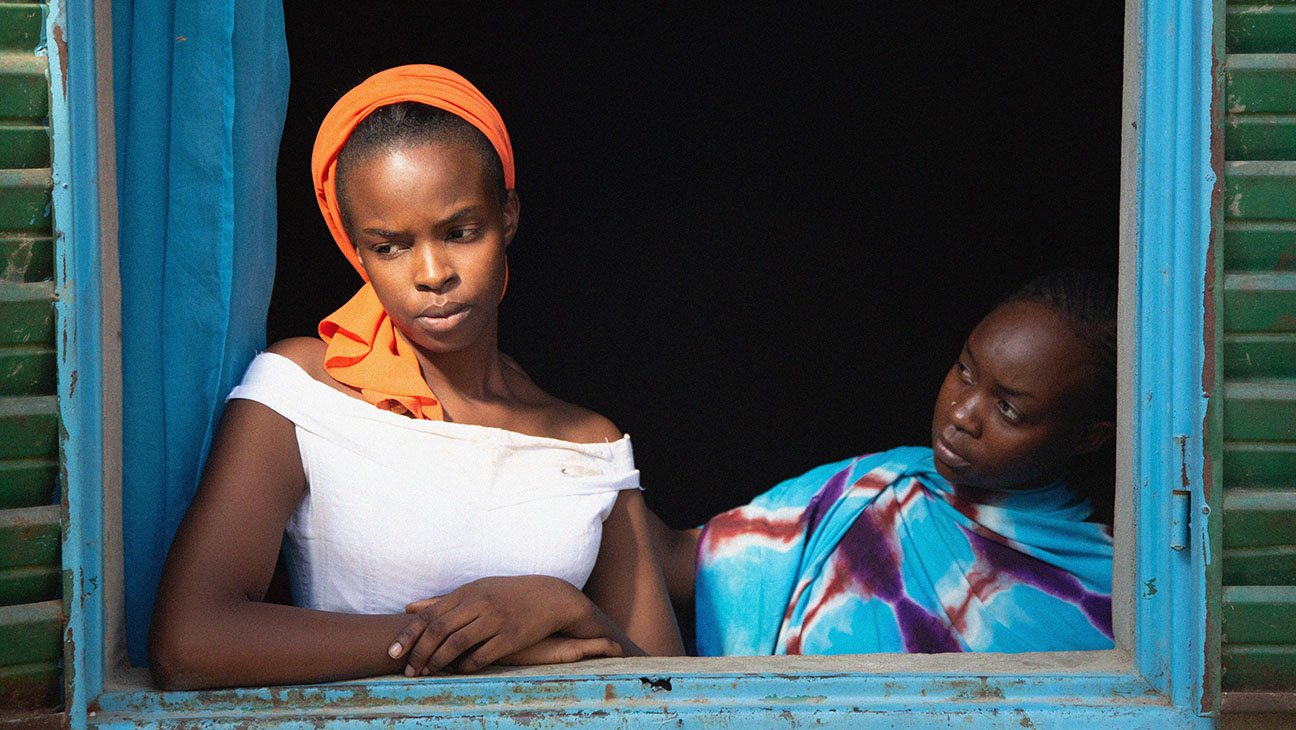
In Chad, whose two main languages are Arabic and French, “lingui” is a distinct term meaning a “bond or connection”; the film’s alternate title gives it a more pious hue—the “sacred bonds.” But what’s fascinating and most novel about African cinema great Mahamat-Saleh Haroun’s new drama is the lack of an overtly religiose aura: the bonds created by its generation-spanning units of women are uplifting and resilient, while sought independently from Chad’s ruling, patriarchal class. To compare with conditions in the West, an analog would be to radical women’s networks, or even experiments in collective living and solidarity like communes. – David K. (full review)
Strawberry Mansion (Albert Birney and Kentucker Audley; Feb. 18)
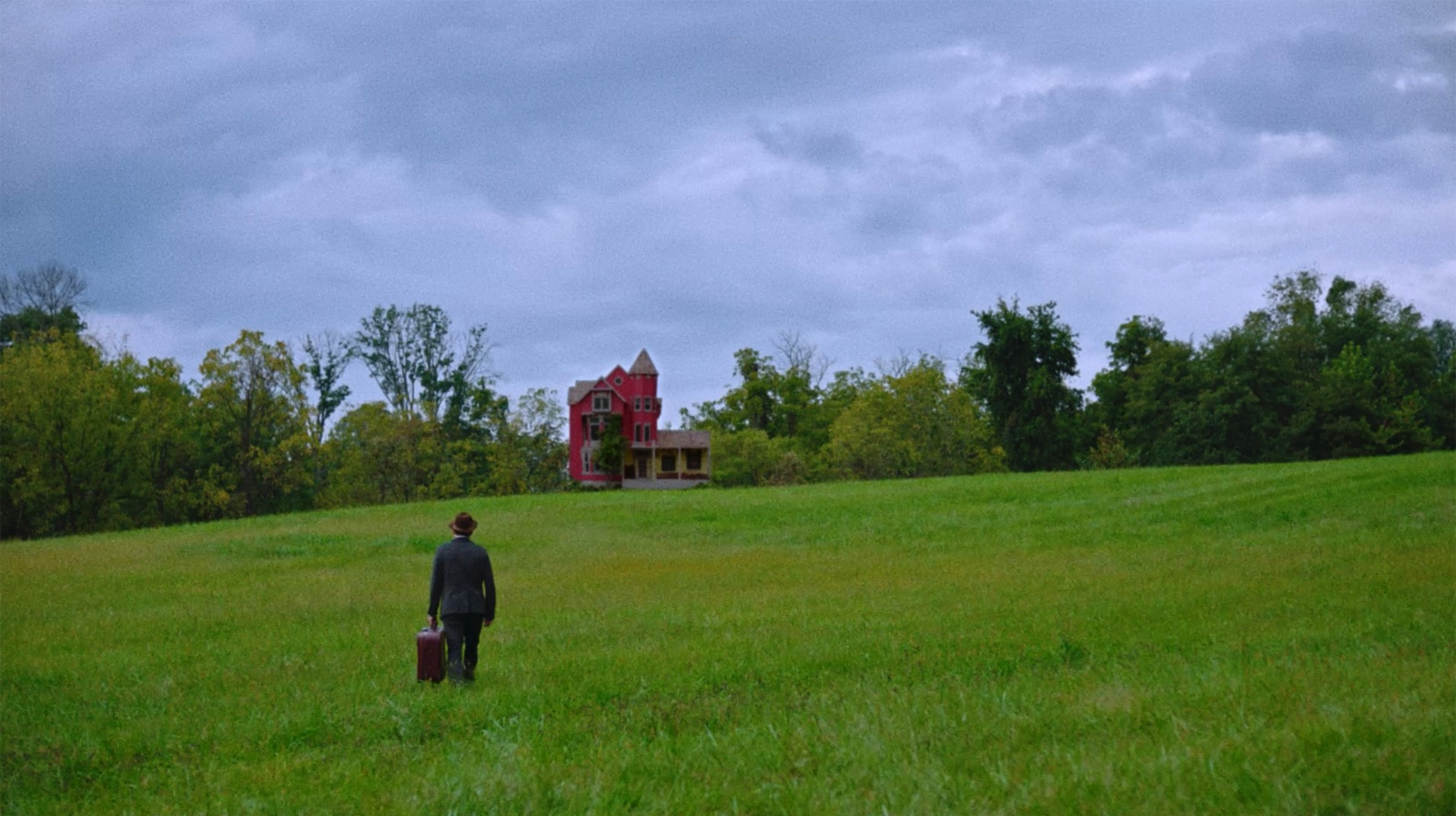
What if the government didn’t strictly tax your paychecks and transactions, but your dreams as well? With their vibrant, imaginative, and genre-melding new film Strawberry Mansion, directors Albert Birney and Kentucker Audley envision this reality in the near-future of 2035, but with their clear admiration for analog technology, it could just as well take place in an alternate timeline recalling decades past. Following a dream auditor named James Preble (Audley) who ventures to a remote farmhouse for his latest assignment, he’s tasked with auditing the dreams of the eccentric, elderly Bella (Penny Fuller), who has failed to file hers for decades. Fondly recalling Michel Gondry’s Science of Sleep as reality and dreams start to meld, the film is equal parts lovely and frightening as it explores romantic bliss, destructive capitalism, and the significance of the subconscious state we all spend a third of our lives experiencing. – Jordan R. (full review)
Huda’s Salon (Hany Abu-Assad; March 4)
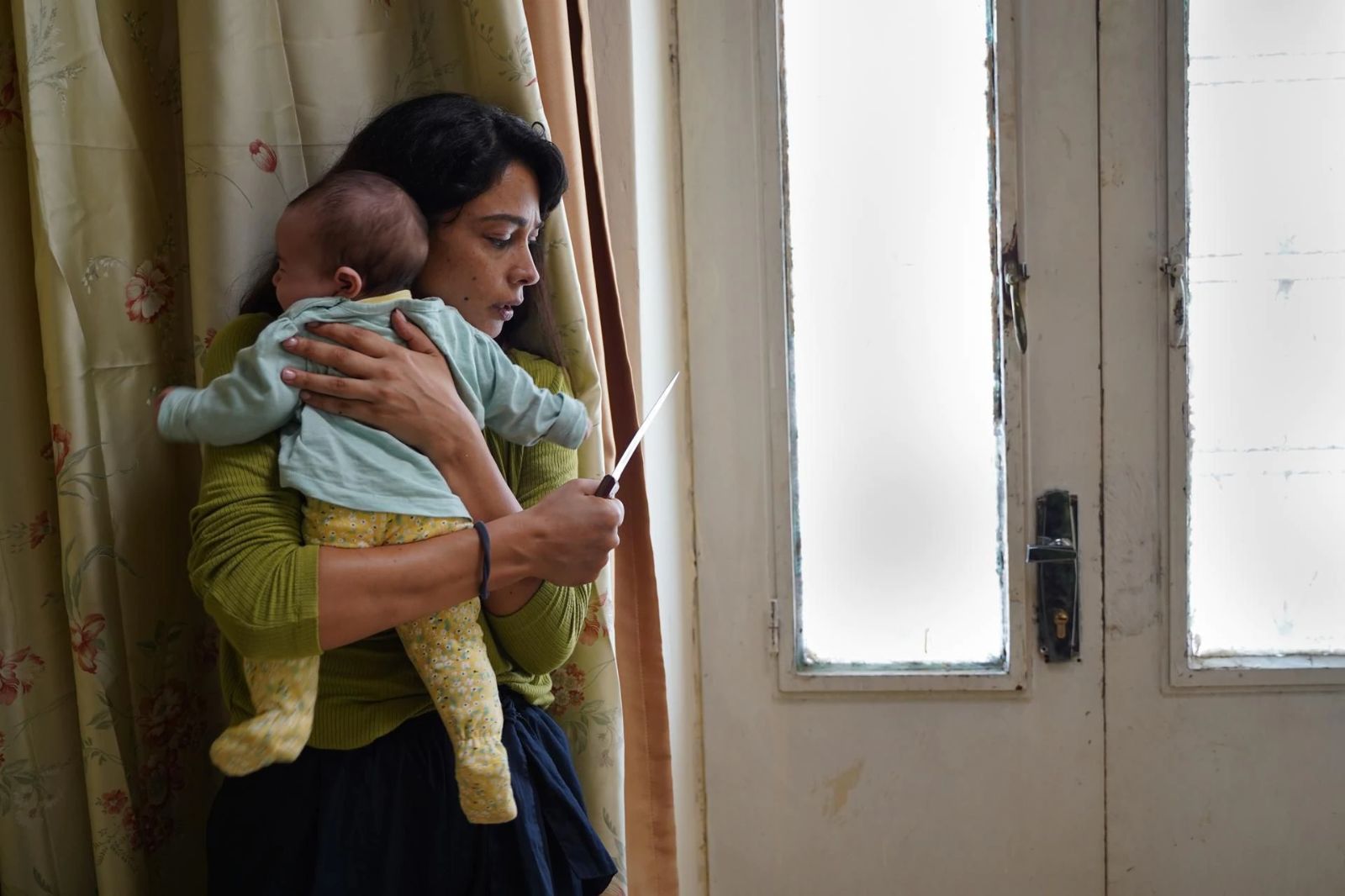
Long live the socially minded political thriller! Thanks to filmmaker Hany Abu-Assad, this long-underserved sub-genre––once perfected by directors like Hitchcock, Pakula, and Weir––feels briefly resurrected thanks to his new picture Huda’s Salon. Set in the West Bank and based on true events, the film concerns Palestinian housewife Reem (Maisa Abd Elhadi) and the circumstances that are set in motion after a fateful trip to a local salon run by a woman named Huda (Manal Awad). – Dan M. (full review)
Great Freedom (Sebastian Meise; March 4)
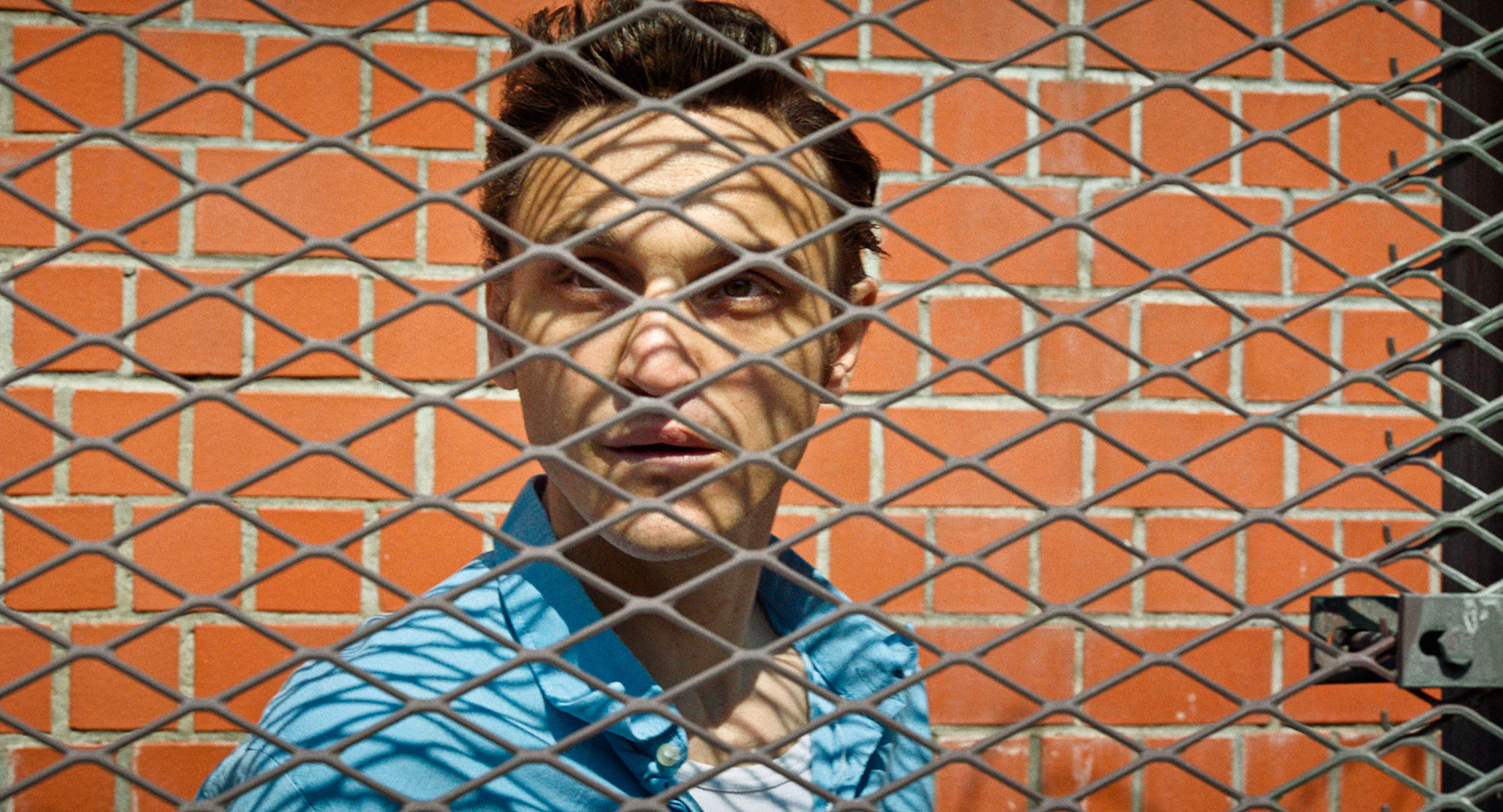
Its decades-spanning story centers on Hans (Franz Rogowski), a gay man who has lived through Nazi persecution only to find himself in a world where homosexuality continues to be deemed not only perverted but a criminal offense. We first meet Hans in 1968 as a middle-aged man. He’s caught by the police for having sex with men in public toilets and sentenced to two years’ imprisonment. He goes through the procedures, checks all his liberties at the prison gate, and picks up his new daily grind without so much as batting an eyelash. Even when standing up for young inmate Leo (Anton von Lucke) and landing in solitary confinement there seems to be no fear, no surprise, no protest. Just when one thinks he’s acting way too calm in such situations, the movie jumps back to 1945 and introduces us to a fresh-faced Hans in jail for the first time. Eventually we’d see another prison stint of Hans in 1957 and realize how many times he’s been through this and what motivated him to do what he does in 1969, following the decriminalization of homosexuality in Germany. – Zhuo-Ning Su (full review)
Ahed’s Knee (Nadav Lapid; March 18)
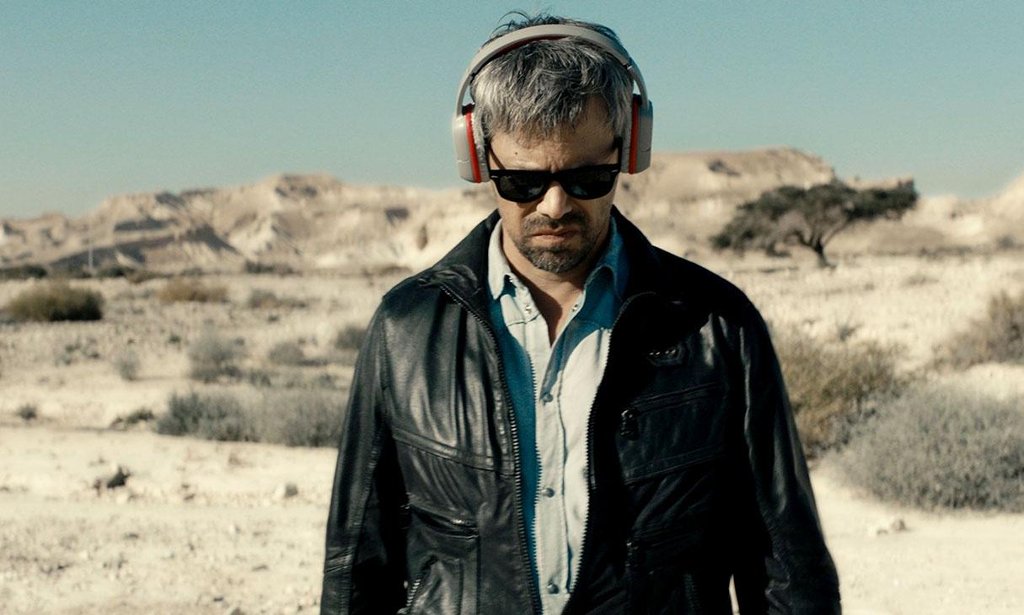
It’s always interesting, at the beginning of any Nadav Lapid film, to note the myriad Israeli institutions that have backed the project. Since Emile’s Girlfriend (2006), Lapid’s work has sought to make sense of Israeli society—his criticisms a byproduct of attempting to articulate the confusion and warring arguments in his own head. Having won Berlin’s Golden Bear with Synonyms in 2019, Lapid could claim to be the most renowned Israeli filmmaker of his generation. That his work is at risk of falling afoul of that same state speaks volumes about the country’s ever-increasing authoritarianism as a whole. Further confirmation of that renown came with news that his latest would compete for the Palme d’Or at an already-stacked Cannes. It’s titled Ahed’s Knee, a blistering work of meta filmmaking Lapid shot during the pandemic and that addresses censorship concerns head-on. – Rory O. (full review)
Nitram (Justin Kurzel; March 30)
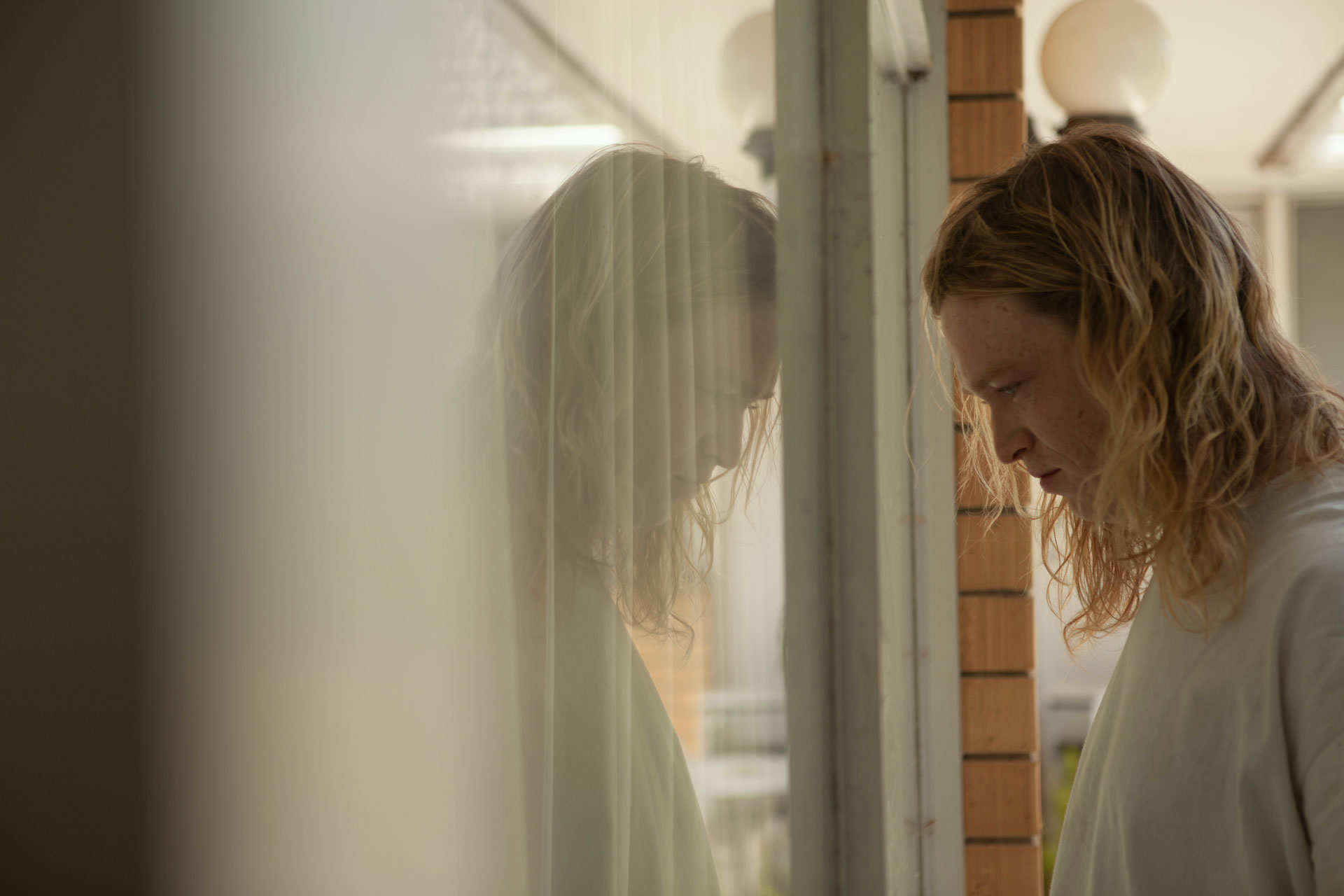
Approaching the 25th anniversary of the tragedy—and accompanied by a degree of public backlash in Australia—director Justin Kurzel has made Nitram, a fictionalized account of Bryant’s life before the murders and attempt to forensically investigate factors that fostered the atrocity. That it isn’t an exploitative embarrassment is a relief, but the film runs into some issues for seeking cast-iron certainties about something truly inexplicable. The four main performances—from Caleb Landry Jones as Nitram, Judy Davis and Anthony LaPaglia as the parents, and the brilliant Essie Davis as benefactor and friend Helen—lend affairs some dignity. – David K. (full review)
Bull (Paul Andrew Williams; April 1)
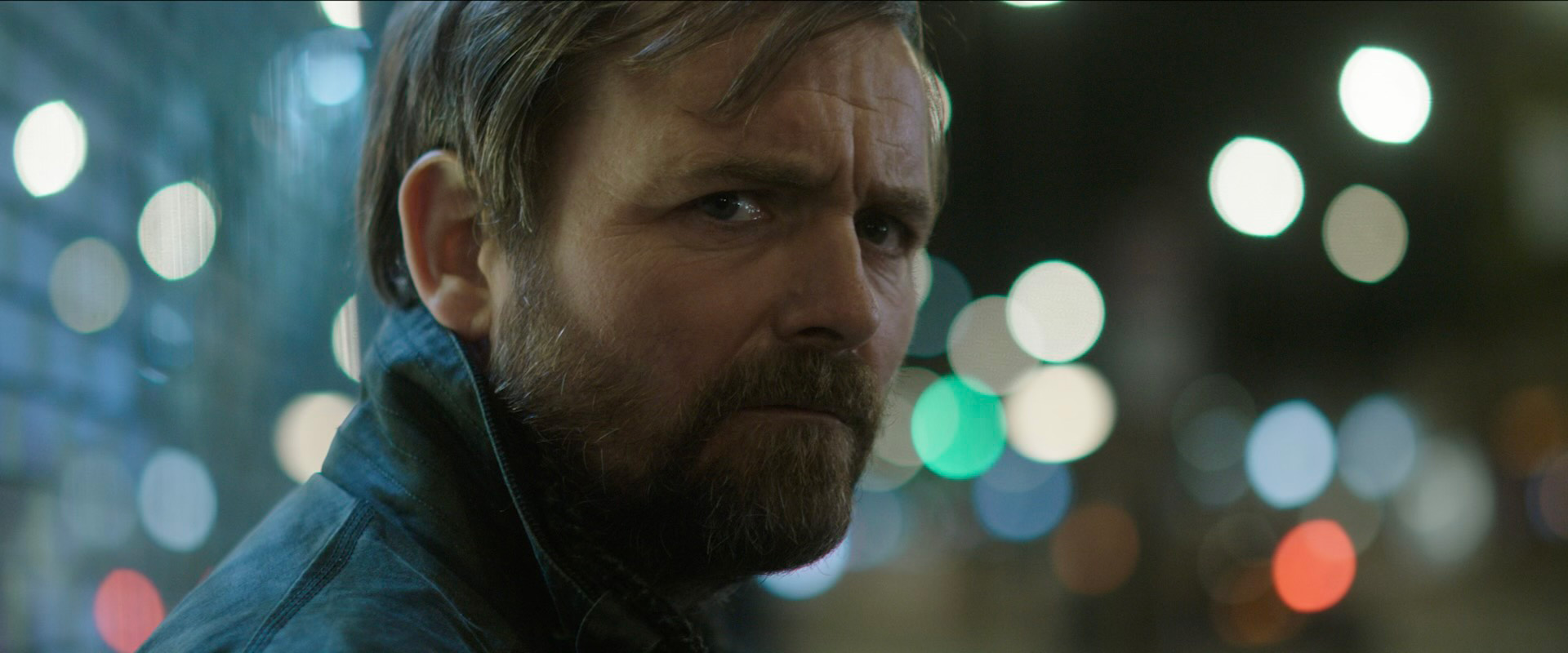
It’s been ten years since Bull’s (Neil Maskell) son Aiden was taken by his ex-wife (Lois Brabin-Platt’s Gemma) and father-in-law (David Hayman’s Norm). Ten years that have apparently progressed with few worries for everyone but him. Norm still runs the local crew of heavies putting the screws to businesses they need to help move their merchandise; said crew have all started families without a thought of what occurred. That Bull’s return is unexpected shouldn’t surprise, considering how long he’s been gone, but the level of terror he induces in those staring down the other end of vengeance’s knife or gun certainly is. With nothing to lose as he demands Aiden’s current whereabouts, he burns through town without remorse. – Jared M. (full review)
Awaiting a Release Date
Benediction (Terence Davies)
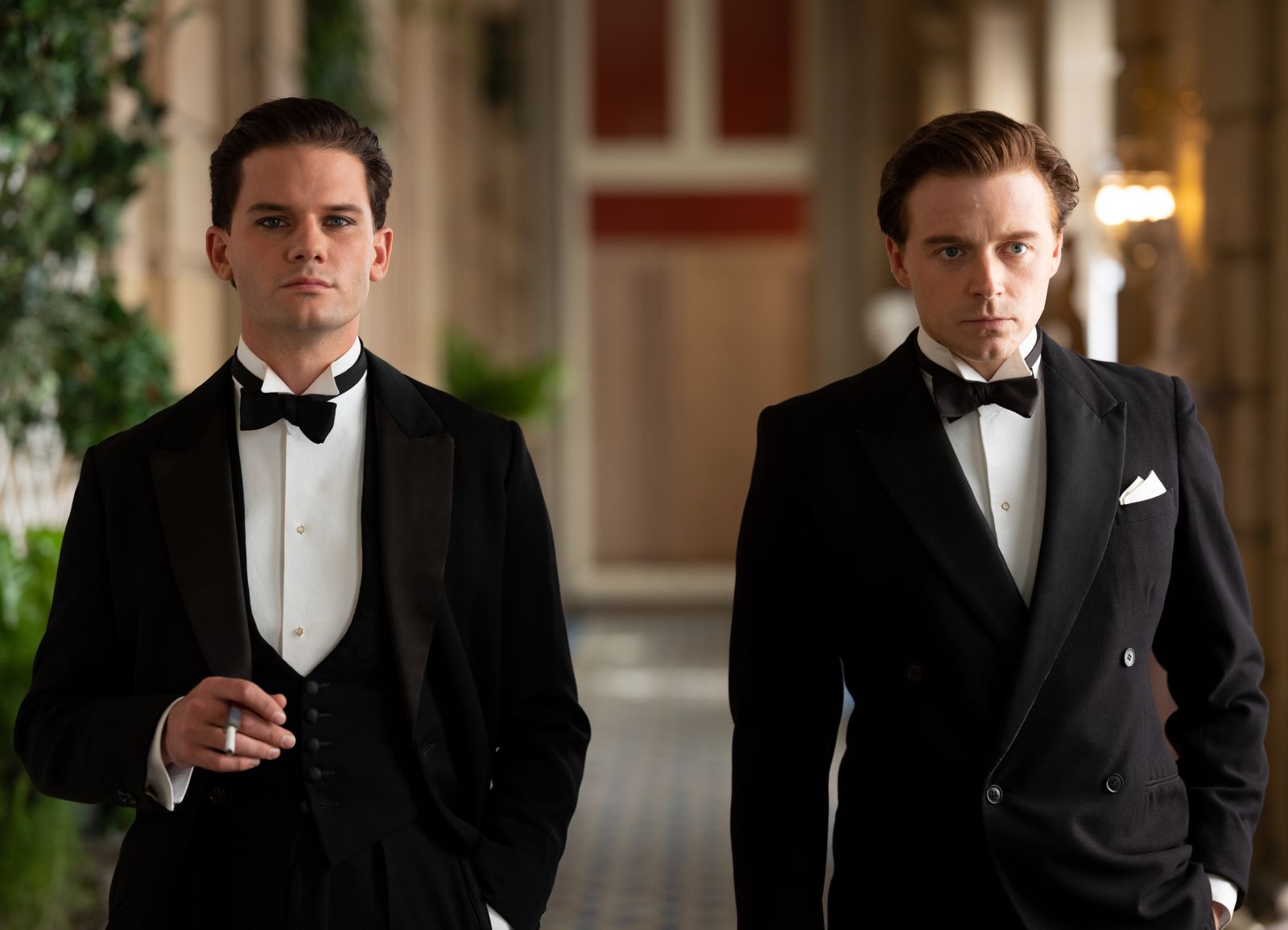
Time is everything in a Terence Davies film. In Benediction, his biopic about English poet Siegfried Sassoon (Jack Lowden), he eventually covers his subject’s marriage to Hester Gatty (Kate Phillips). There’s a shot of the couple standing still, facing the camera as they pose for a wedding photo (a shot that tends to pop up throughout the director’s filmography). The camera flashes, we see the black-and-white photo, and then a fade transitions us to the future, where it rests on their bedside while Hester looks at their newborn child. The sequence is an encapsulation of what Davies does best: observing life with one’s head facing backwards, the cumulative weight of the past bearing down on every moment of the present. – C.J. P. (full review)
Il Buco (Michelangelo Frammartino)

Caves… whence we came from––and for Italian auteur Michelangelo Frammartino’s latest work Il Buco––towards which we return. The fixation with caves and speleology in this film hint at the sometimes-regressive nature of that discipline. In human evolutionary terms, it’s like retracing one’s steps: going back towards the darkness, our primitive homes before homo sapiens could colonize other terrains (for better, or rather, for worse). As a candidate for geographical mapping, is there such an urgent sense of utility? Cave complexes such as the Bifurto Abyss in southern Italy, depicted in this film, are a kind of anti-space, comparable to actual “outer space” in their inaccessibility and inhospitality to today’s humans. – David K. (full review)
Cow (Andrea Arnold)
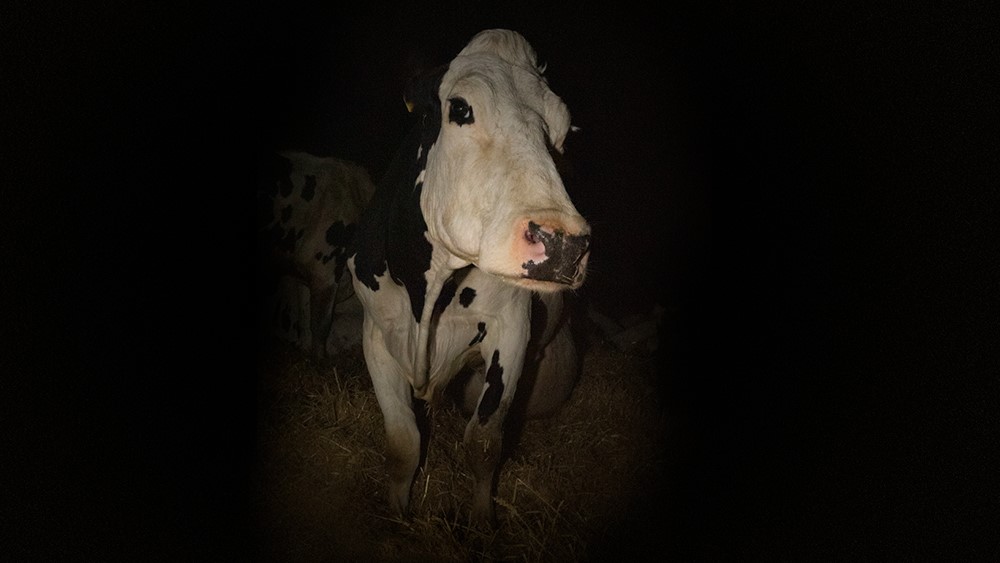
Andrea Arnold, director of stylized social-realist dramas like Red Road and Fish Tank, takes a drastic turn with an in-your-face documentary about a farmyard cow. Yet despite a lo-fi, handheld-camera cragginess, it still has something of the lyricism that marks so much of her work, going back to the Oscar-winning short Wasp. – Ed F. (full review)
Friends and Strangers (James Vaughan)

Nothing happens in James Vaughan’s Friends and Strangers in the same way that nothing happens in the films of Hong Sangsoo. The people navigating this entrancing debut feature (a lively pantheon of Australian twenty-somethings plus the occasional grownup proper) meet and talk; couples come together and drift apart; plans are shared and swiftly abandoned. But even a non-event can have its own sense of happening, and even a maze of chance encounters can reveal its own intelligent design. Populated by young adults fumbling after a coherent identity, Friends and Strangers behaves like them. It is a film of detours, digressions, and everyday surrealism––onethatdraws its unsettling allure from the angst that comes when you realize the path you’ve walked along isn’t paved anymore, and the future you’re venturing into will be entirely your own making. – Leonardo G. (full review)
Gagarine (Fanny Liatard and Jérémy Trouilh)
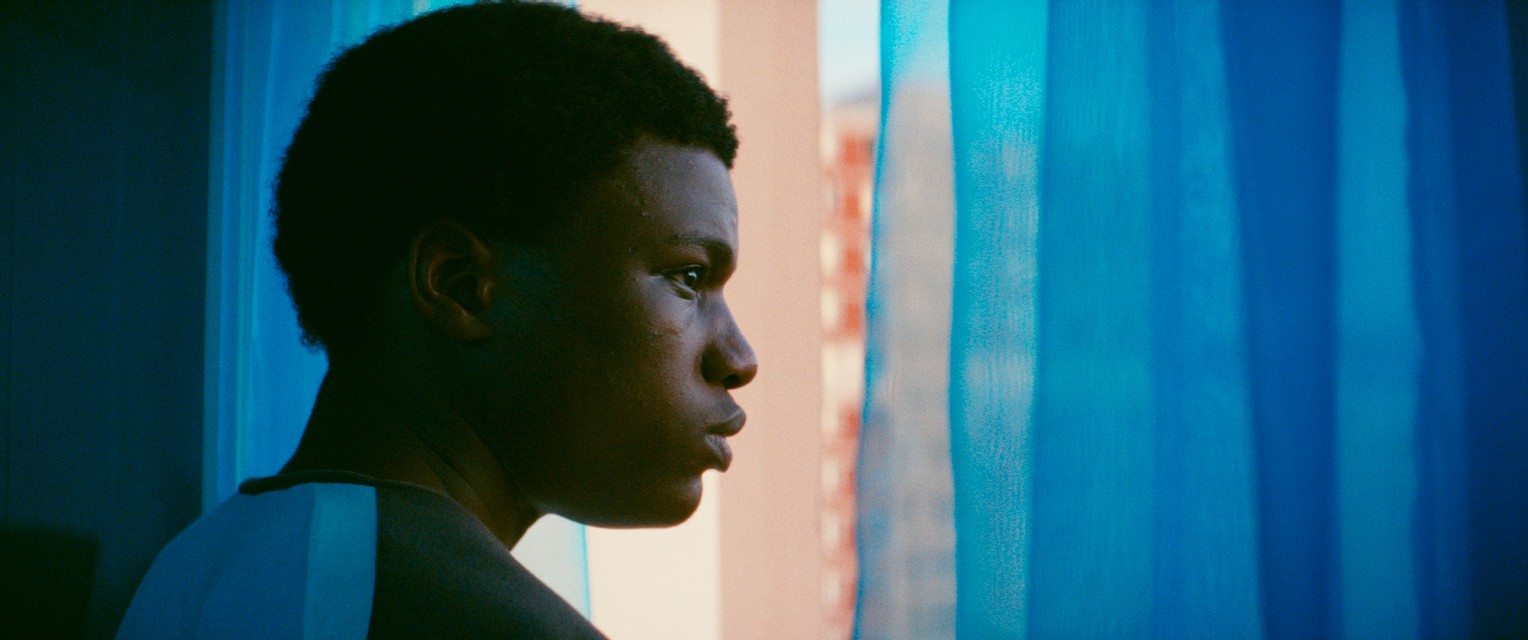
Gagarine might not be explicitly about an autistic character; it’s never directly stated that the 16-year-old protagonist Youri (a sensational Alseni Bathily) is autistic, but it is one of the greatest pieces of representation that our community has ever experienced in cinema. Similar to Paul Thomas Anderson’s Punch-Drunk Love, an official diagnosis is not necessary for viewers to understand the protagonist’s autism. It is clearly evident throughout watching their fixations and their mannerisms. – Logan K. (full review)
The Girl and the Spider (Ramon and Silvan Zürcher)
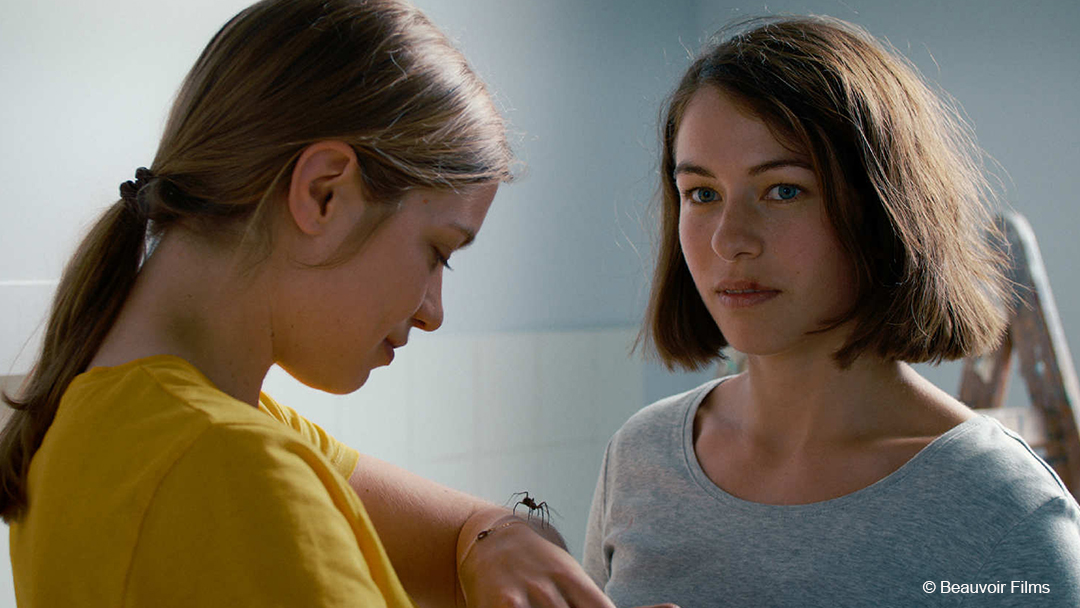
Ostensibly the story of a Berlin family preparing for its evening dinner as a cat wanders the apartment, The Strange Little Cat was among the most beguiling films of the early-to-mid 2010s and its more mysterious explorations of everyday family life. With the 2021 Toronto International Film Festival entry The Girl and the Spider, director Ramon Zürcher returns, with brother Silvan Zürcher as co-director. (The latter produced The Strange Little Cat.) Spider is equally captivating––a mesmerizing, uniquely ambiguous study of friendship, rivalry, tension, and memory. It is difficult to remember another recent film that does so much with so little in the way of plot and location. – Chris S. (full review)
Happening (Audrey Diwan)
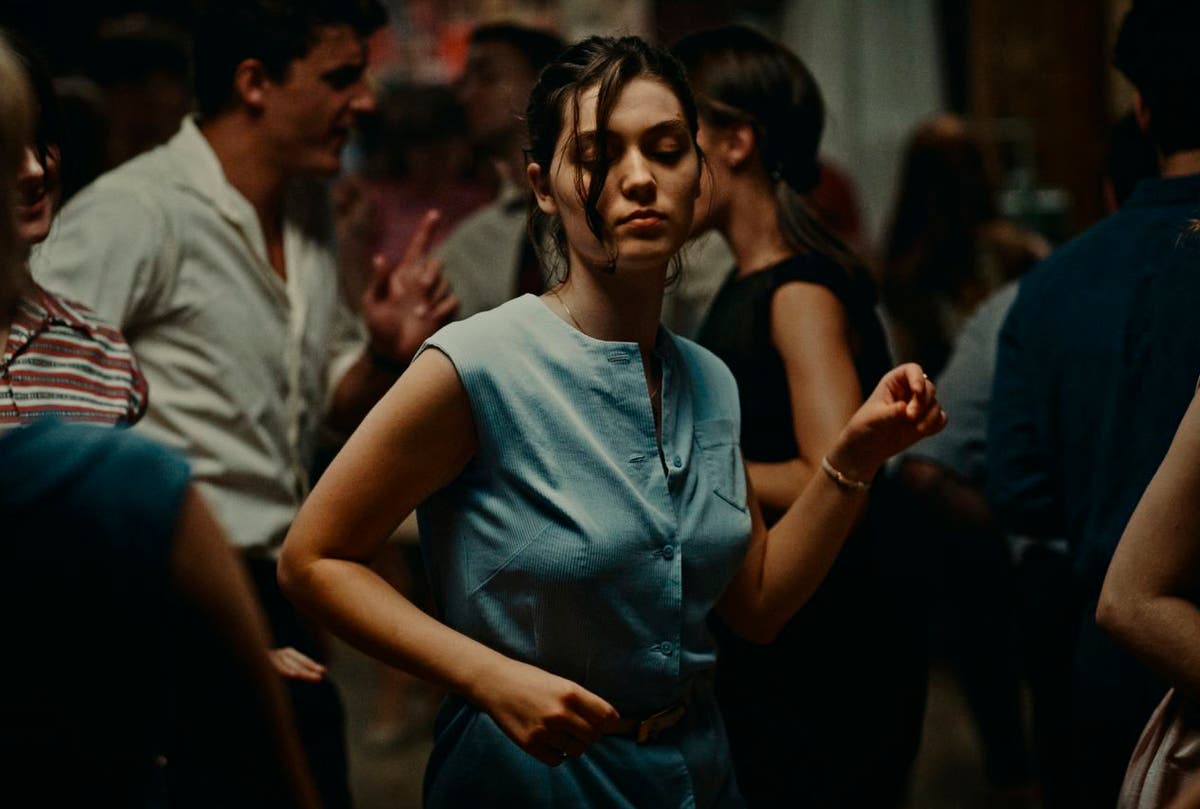
Diwan’s sophomore feature is an unglamorous, straightforward film that tells a simple story about an ordinary girl. It is also the single most intense, shatteringly empathetic thing I’ve seen all year. Carried by Anamaria Vartolomei’s fiercely committed performance, the ’60s-set drama takes on the subject of unintended pregnancy and illustrates how far from a political / religious issue it can be when it happens to you. Abortion has been dealt with in landmark films in the past, but the intimacy of perspective achieved here feels truly unmatched. A vital call for kindness like no other. – Zhuo-Ning Su
Hit the Road (Panah Panahi)
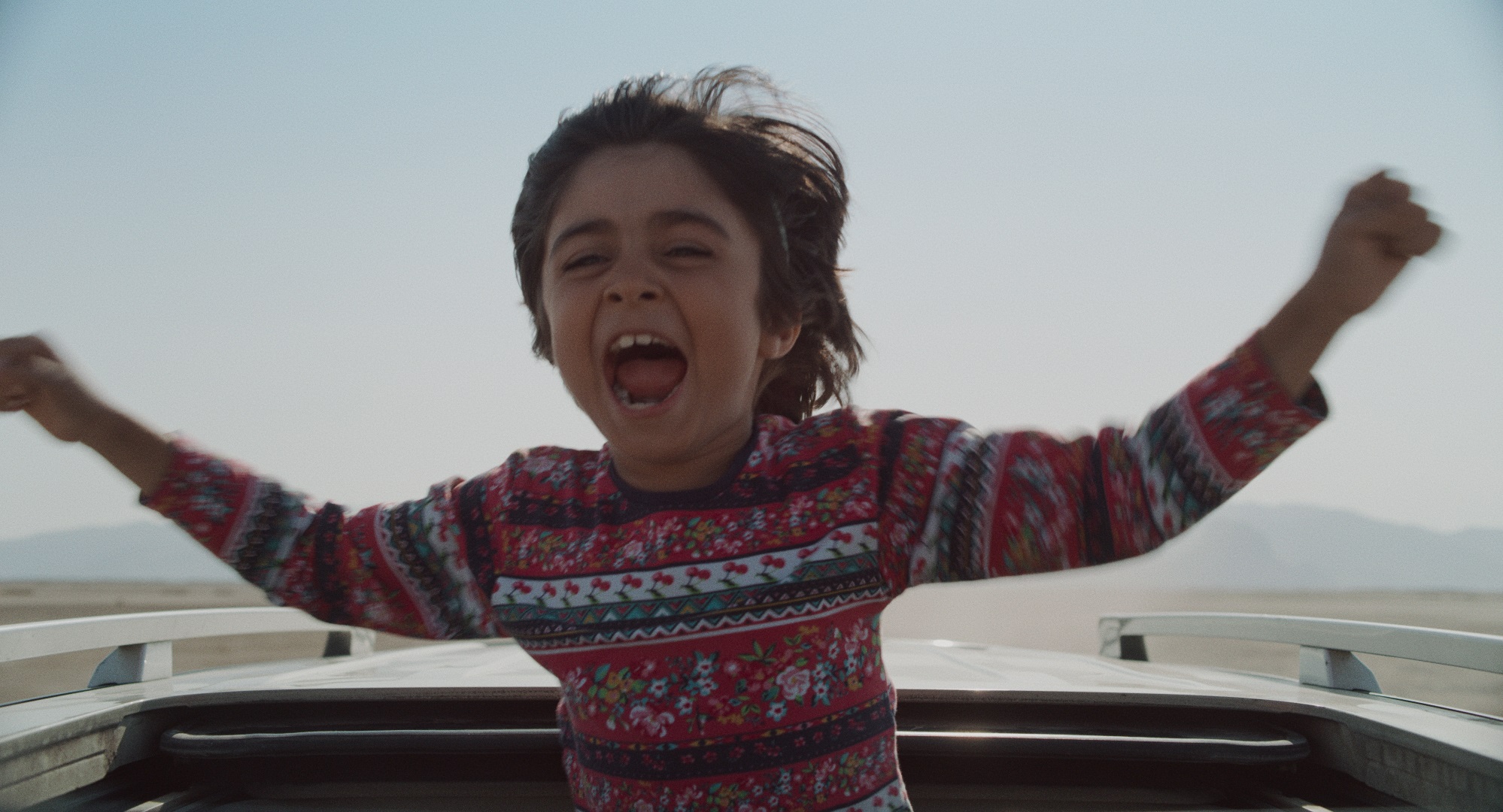
There’s not much exposition in Hit the Road. In fact it takes most of Panah Panahi’s remarkable directorial debut, about a family traveling across northwestern Iran, to understand the full gravity of this noisy and comical road trip. Yet this movie’s power comes in the slow-burning revelations found through the straightaway desert roads and rolling lush hills, which amount to an emotionally wrenching crescendo. – Jake K. (full review)
In Front of Your Face (Hong Sangsoo)
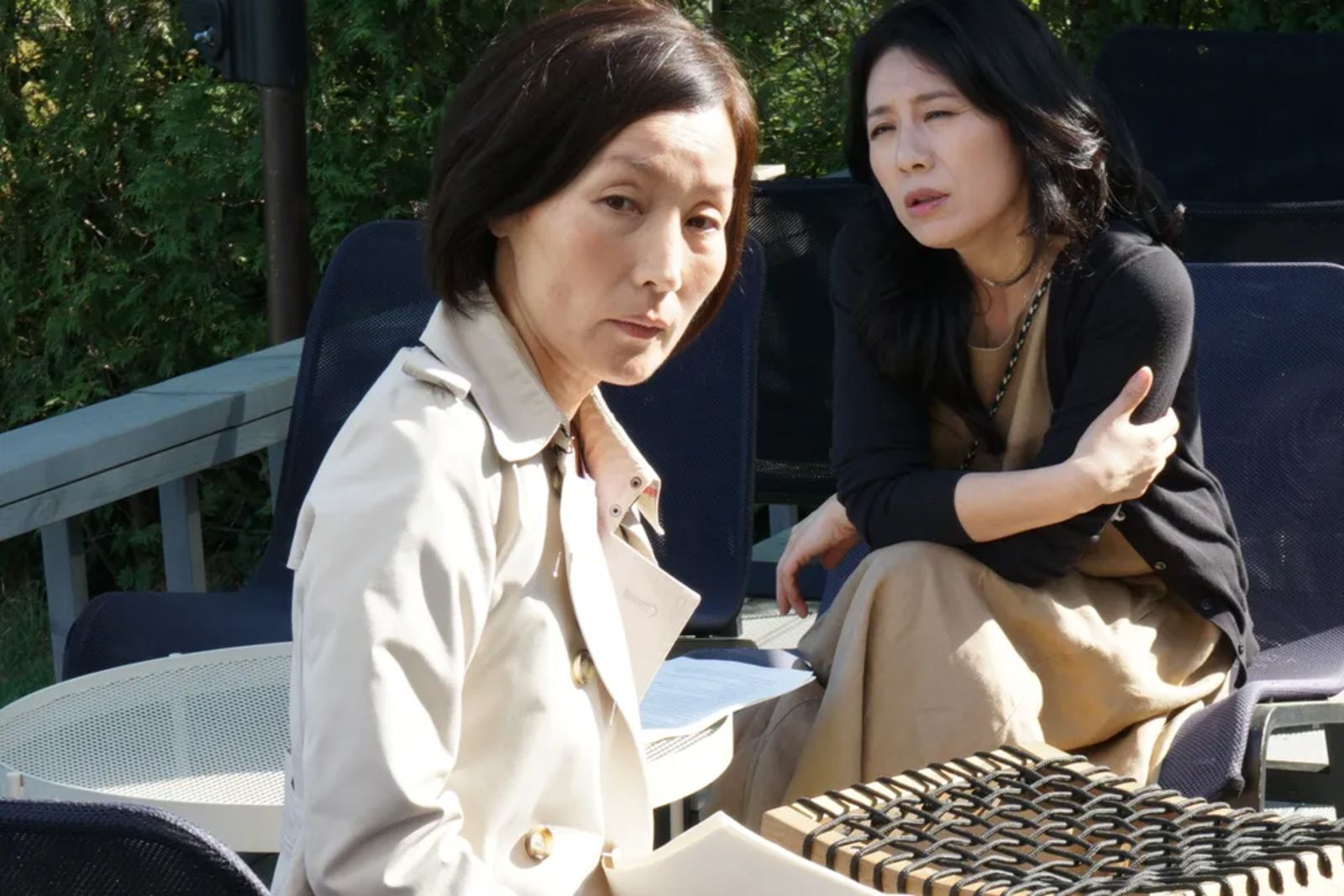
By evidence, Hong Sangsoo may never make an Oki’s Movie or Hill of Freedom-type work again; our maestro is shooting for bigger emotional game. It’s fascinating to observe how idiosyncratic directors make their way towards the arthouse mainstream. With Hong, arguably, it’s come from two sources: less of a rigid fixation on male vanity, neurosis, and inebriation, coupled with plot summaries you could describe in a brief, eloquent sentence. Oki’s Movie, for instance, approaches a Faulkner-esque writer with its digressive intricacy; The Day He Arrives is like a fractal Groundhog Day. This is well-rehearsed, but there’s something to be said for emotional transparency and an examination of things “as they are,” to paraphrase dialogue from In Front of Your Face’s lead character. Another well-rehearsed question: are we yet again in self-portraiture mode, for someone with a Dorian Gray-like attic full of them? – David K. (full review)
Mad God (Phil Tippett)

In Mad God, a character called “The Last Man” (played by the great Repo Man director Alex Cox) runs a laboratory sending miniature explorers into the bowels of a layered Dantean hell that might be a reflection of his own psyche––or more likely still: that of the filmmaker. The man in question is Phil Tippett, a legendary Hollywood special effects guru, two-time Oscar winner, and Ray Harryhausen disciple whose eye-watering résumé reads like a highlight reel of 21st-century pop culture ephemera: designing the Cantina masks, AT-ATs, and Jabba the Hutt for George Lucas; being credited as “Dinosaur Supervisor” on Jurassic Park; and animating everything from the holochess set on the Millennium Falcon to the ED-209 in Robocop and the swarming hoards of bugs in Starship Troopers. What a life. – Rory O. (full review)
Ninjababy (Yngvild Sve Flikke)

The title of 2021 Berlinale and SXSW selection Ninjababy might conjure thoughts of wacky superhero adventures; “Ninjababy” could be Astro Boy or Turbo Kid’s infant cousin. Director Yngvild Sve Flikke’s film, based on Inga H Sætre’s graphic novel, is no superhero adventure, although it is a bit wacky. Rather, Ninjababy is a delightfully unruly, genuinely moving portrait of a young woman stuck in a situation with no easy way out. Smartly plotted and downright hilarious, it features a star-making performance from lead Kristine Kujath Thorp. – Chris S. (full review)
Neptune Frost (Saul Williams and Anisia Uzeyman)
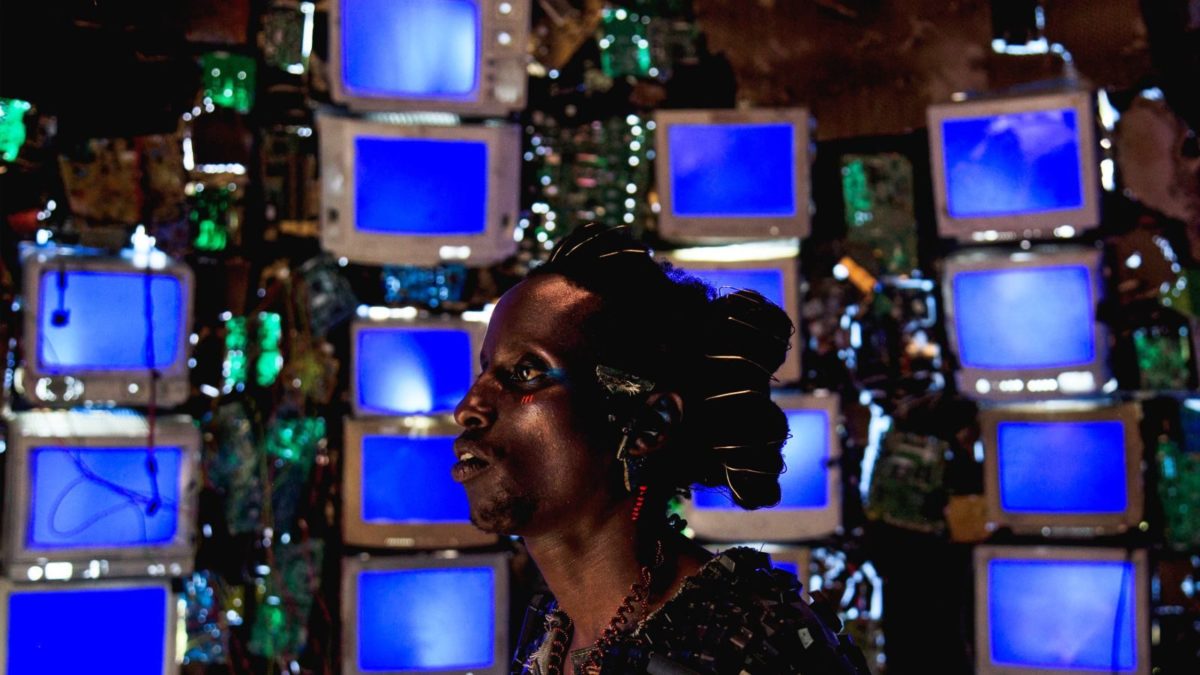
Neptune Frost—the directorial debut from poet, rapper, actor, performer Saul Williams (co-helmed with Anisia Uzeyman)—exists in a state of singularity, teetering between present and future. Set in a makeshift village in Rwanda and featuring musical elements composed by Williams, the drama looks at technology, capitalism, and the big machine, and raises a middle finger by promoting protest, gender fluidity, and cosmic connection. Repetition becomes an anthem as Williams’ characters, a coltan miner and intersex runaway, find one another through shared dreams. It’s full of anger, passion, love, and a collective desire to impact the world and those that run it from high places. – Michael F. (full review)
One Second (Zhang Yimou)

I was pleasantly surprised Zhang Yimou still has what it takes to make a film like One Second, an intimate, plot-driven human drama that even touches on a couple political nerves. Set during the Cultural Revolution in a remote town in the Chinese Northwest, One Second opens with the nameless protagonist (Zhang Yi) trekking through the desert to reach the town where a propaganda film is set to screen. Upon arriving, he witnesses the theft of the film reel by a vagabond girl (Liu Haocun) and immediately sets out to retrieve it. The stories of these two mysterious characters hellbent on getting one film reel would eventually come to light after they meet the town projectionist (Fan Wei), who is under pressure to show the film no matter what. – Zhuo-Ning Su (full review)
The Tale of King Crab (Alessio Rigo de Righi and Matteo Zoppis)
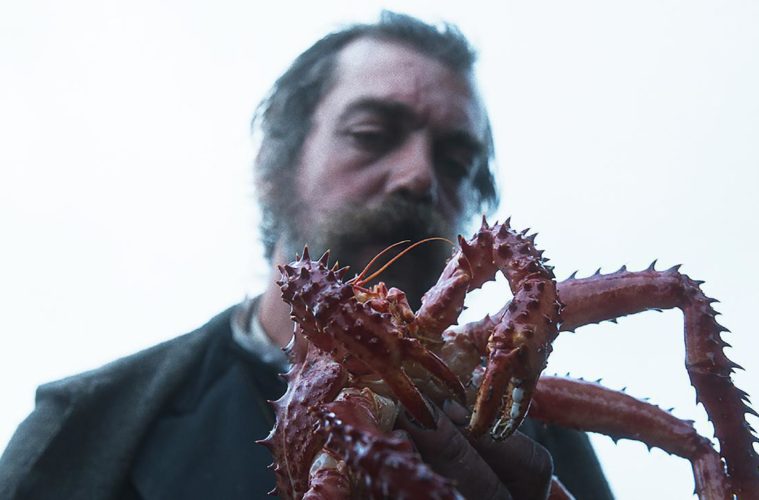
A rare and elusive sense of myth is captured in The Tale of King Crab, a story of a 19th-century vagabond who falls in love with the daughter of a local farmer only to run afoul of a prince. (Tough luck.) Later on, astonishingly, he finds himself on the other side of the world. With that kind of spatial and temporal scope, it’s remarkable that Crab is only the first narrative feature from Italian filmmakers Alessio Rigo de Righi and Matteo Zoppis, a duo whose output, while ostensibly non-fiction to this point, has often played on the boundary of fable. Small traces of both Black Beast (their 2013 short about a legendary animal) and Il Sonengo (their 2018 feature documentary about a lone hermit) can be located in Crab, a film with all the texture of a folktale—one passed through generations, the facts blurring and embellishments only growing more ethereal with each retelling. – Rory O. (full review)
The Tsugua Diaries (Maureen Fazandeiro and Miguel Gomes)
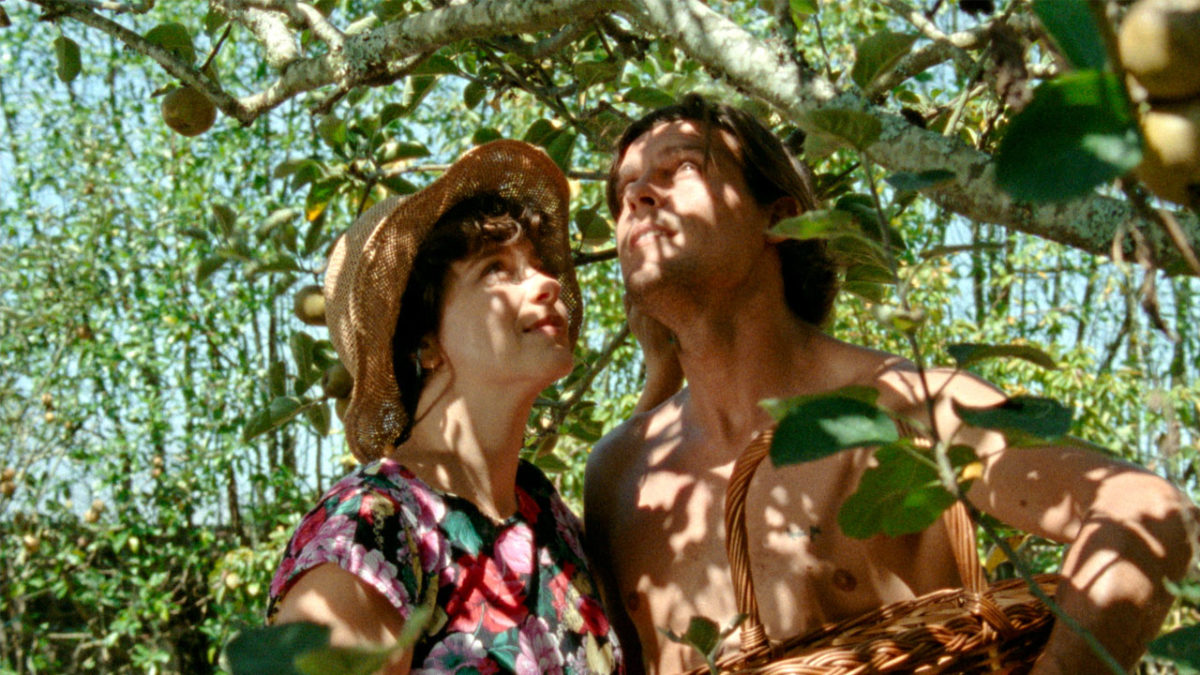
When the idea of “pandemic movies” becoming a sort of subgenre was formed and necessitated by global conditions, there was a groan that could be heard around the world. We know how this goes. Artists will jump on gimmicky opportunities to shallowly explore interior space and entrapment. It became a cliché before any movie was even made. Yet some great artists found a way to make unique, memorable studies of the current moment. Mati Diop’s In My Room used interior space and feelings of inability to escape to explore monotonous life. Rob Savage’s clever Host turned entrapment into a nightmare of computer-aided terror. The latest film from Portugal’s Maureen Fazandeiro and Miguel Gomes is an exercise in how art itself––and, by virtue, the people involved in making it––has been changed by the pandemic. – Soham G. (full review)
Vortex (Gaspar Noé)
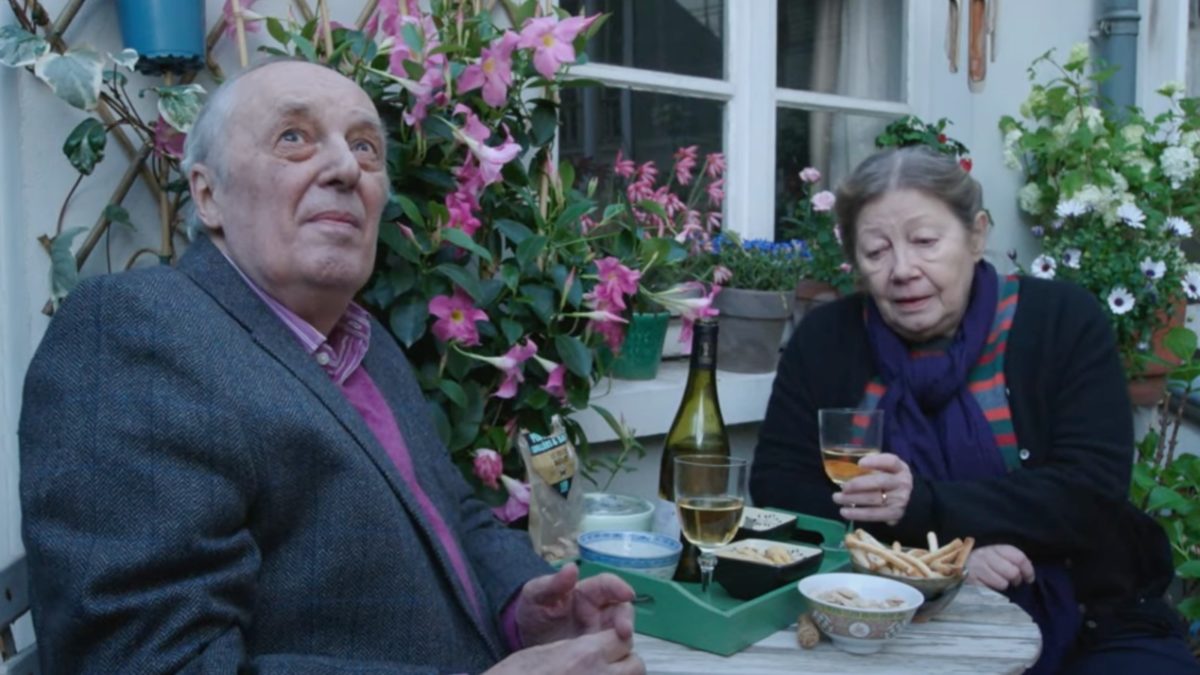
Stories from multiple perspectives have been onscreen at least since Rashomon, but even the great Akira Kurosawa might have found something to like in the new Gaspar Noé. The agent provocateur returns to remind us that death is inevitable and rarely dignified. His newest film is Vortex and it takes place in Paris, specifically the apartment of a married couple on the final furlongs of life. It opens on the pair enjoying an evening on the balcony: “life is a dream,” the wife says; to which the husband responds, “a dream within a dream,” quoting Poe; then a clip of Françoise Hardy (“I’m one foot in the grave,” she sings) over a black and white image of a wilting rose. The mind wanders to Jean-Louis Trintignant and Emmanuel Riva in Amour, another story of wilting roses in the French capitol. (For once, though, Haneke looks the sentimentalist.) – Rory O. (full review)
We’re All Going to the World’s Fair (Jane Schoenbrun)
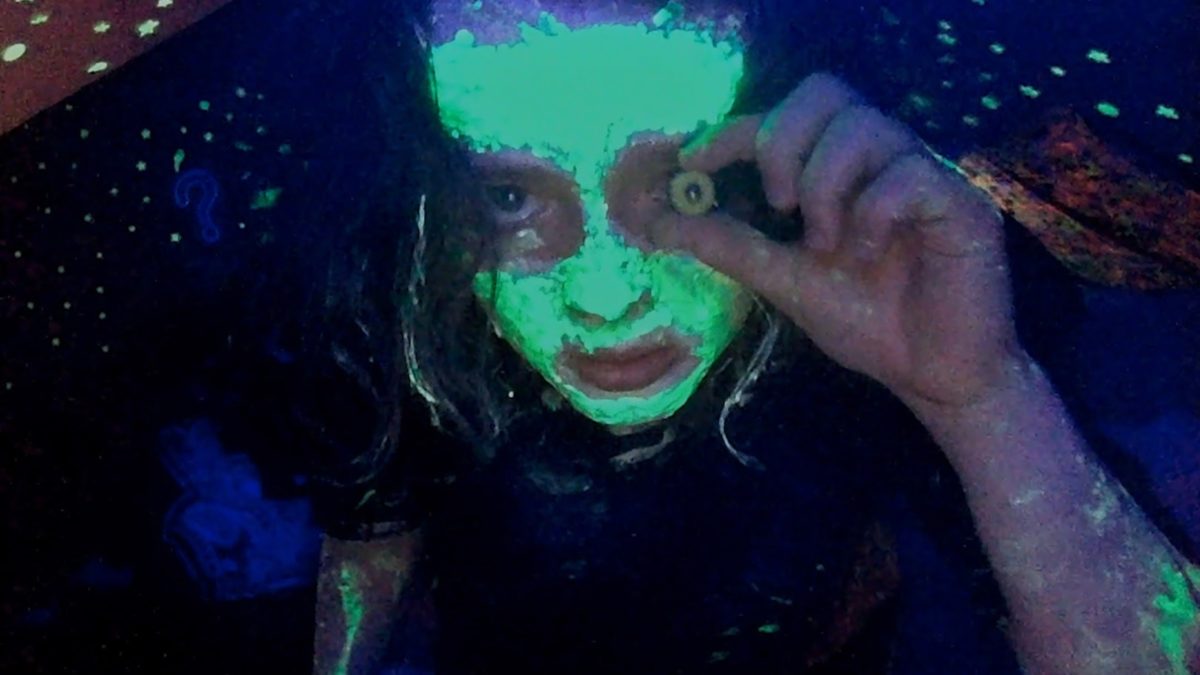
We’re All Going to the World’s Fair premiered at Sundance in 2021 and hasn’t left my mind since. Jane Schoenbrun’s film is about a teen girl named Casey who takes the World’s Fair Challenge (an online role-playing horror game) and slowly but surely documents the changes that may (or may not) be happening to her. Its deceptively simple plot description hides what a rich text exists within; an ambitious and haunting coming-of-age story that also happens to be one of the most loaded queer films in years. – Juan B.
Honorable Mentions
- After Blue
- After Yang
- Beyond the Infinite Two Minutes
- Catch the Fair One (Feb. 11)
- Compartment No. 6 (Jan. 26)
- Los Conductos
- Evolution
- Fabian – Going to the Dogs
- The Fallout (Jan. 27)
- Futura (Jan. 28)
- El Gran Movimiento
- Moon, 66 Questions
- On the Count of Three
- Paris, 13th District
- The Phantom of the Open
- Pleasure
- Rock Bottom Riser
- The Sadness
- Sundown (Jan. 28)
- Superior
- Unclenching the Fists
- The Whaler Boy (Jan. 14)
